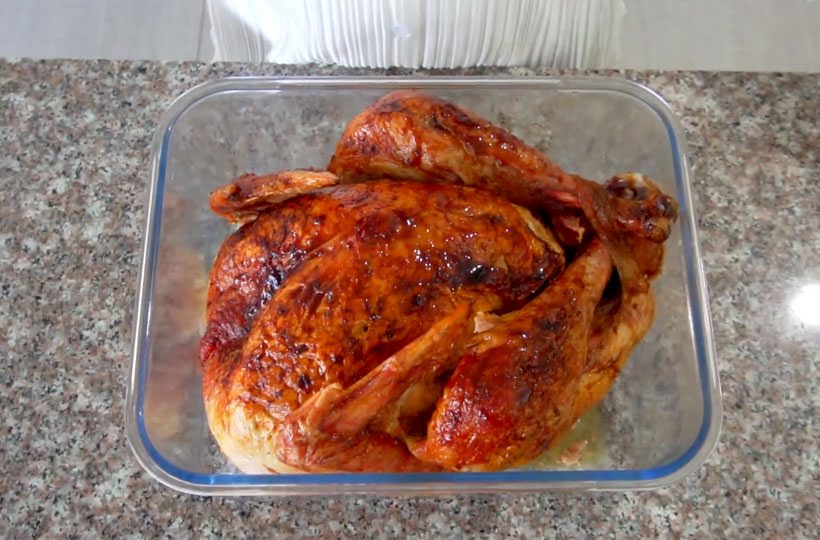Glass vs. Plastic Food Storage Containers: What Should You Use?

Have you ever faced a tradeoff while choosing the food storage? Must have been hard to decide especially when there are price wars going on. Well, we know that deciding between glass and plastic food storage containers is like choosing between takeout or home cooked meals. It depends on your priorities. Plastic is lightweight as well as budget friendly but glass offers unmatched safety and eco-friendliness. This choice affects your family’s health, your environmental impact and how long your food stays fresh.
Let us help you as we will together be exploring the differences in safety, durability, sustainability and daily use of glass versus plastic containers. We will also share practical tips and why Razab’s glass containers are a game changer for moms, meal preppers and environmentally conscious cooks.
What Are the Key Differences Between Glass and Plastic Containers?
There is no doubt that glass excels in safety and sustainability while plastic is lighter and more portable (even on the go). Here is a side-by-side look at glass containers versus plastic:
Duel Between Glass & Plastic
|
Feature |
Glass |
Plastic |
|
Material |
Borosilicate or tempered glass |
Polypropylene and/or polycarbonate |
|
Appearance |
Clear, elegant. Stain resistant |
Cloudy over time. Prone to stains |
|
Durability |
Odor-free. Breakable if dropped |
Scratches, warps, lightweight |
|
Health Impact |
Non toxic, no leaching |
Risks BPA, microplastic leaching |
|
Temperature Versatility |
Oven safe (up to 450°F without lids), microwave safe & freezer safe |
Limited heat resistance & may warp in microwave, some freezer safe |
|
Eco-Friendliness |
100% recyclable, reusable indefinitely. Low environmental impact |
Only 9% recycled, contributes to landfill/ocean pollution |
|
Weight |
Heavier, less portable |
Lightweight, ideal |

Glass, like Razab’s borosilicate containers, offers a premium aesthetic and health benefits while plastic suits quick, on the go needs but carries risks. Plastic containers shade mostly turns orange from pasta sauce while the glass ones stay pristine.
Is Glass Truly Safer Than Plastic for Food Storage?
Yes, glass is safer due to its non-porous nature, preventing chemical leaching. Plastic food storage containers, especially older ones, may contain BPA or phthalates which can over time seep into food when heated as per the NIH. Microplastics from degraded plastic pose health risks particularly for kids.
Razab’s heat resistant borosilicate glass ensures no harmful substances touch your food. Many mothers have switched to glass containers as lunch boxes after learning about BPA giving them peace of mind for their family’s meals.
Is it 100% safe to microwave glass? Know more here!

Which One Is More Durable and Long-Lasting?
So now we come to a trick question: do glass containers last longer than plastic? Glass outlasts plastic in functionality, resisting stains and odors. Also rejects discoloration. Plastic scratches and holds smells, like that lingering curry odor. Glass can break if mishandled, but Razab’s thermal shock resistant borosilicate glass food container handles freezer-to-oven transitions without cracking.
Still thinking about which containers hold their value? Glass, especially high-quality sets like Razab’s, retains functionality and clarity over years unlike plastic which degrades. All glass food storage containers look new after countless dishwasher cycles.

What’s Better for the Environment?
Absolutely! Glass is much more environmentally friendly than the plastic as it is 100% recyclable and reusable forever. Embracing glass consumption is a greener choice as highlighted by the EPA's report which shows glass recycling at an impressive 31.3% far outpacing plastic's 8.7%. Choosing glass prep containers over plastic supports a zero waste lifestyle perfect for eco conscious shoppers. Also as per another report by EPA glass has not only proven to be a useful material in containers but also in other industries. A friend reduced her plastic use with glass hence feeling proud of her greener kitchen.
How Do They Compare in Daily Use?
Glass is more versatile while plastic is lighter. Glass containers like Razab’s, are oven safe, microwave safe (with vented lids), freezer safe and dishwasher safe, ideal for meal prep, baking or reheating. Plastic warps in high heat and is less durable but suits kids’ lunch boxes due to its weight. Glass stacks neatly, saving fridge space. A meal prepper I know loves glass for batch cooking but uses plastic for her kids’ school lunches.
Did you know which glass is freezer safe? Read in this blog, Can You Put Glass in the Freezer?
What Do Experts and Users Say?
Experts favor glass for safety and sustainability.
Dietitian Sarah Krieger says, “Glass containers keep food pure, avoiding chemical contamination.”
Sustainability blogger Emma Green adds, “Glass supports eco-friendly living with minimal waste.”
Also Food&Wine, allrecipes, TheSpruceEats, BetterHomes&Gardens, Wirecutter and RealSimple have endorsed these containers as best for food safety, price and collection choice as compared to other materials alternatives like plastics and stainless steel.
Razab’s 10M+ happy households praise their durability and leakproof lids.
User Lisa T. shares, “My Razab glass containers make weekly meal prep stress-free, no leaks, no stains!”
Also a consumer shares how happy she is with the large glass container, shares, “Love it! Better than plastic containers, healthier too. I use it for fruit, fits a whole sliced watermelon, cantaloupe and honeydew melon. Great value, easy to clean, seals works and fits nicely in the refrigerator.!”

Which One Should You Choose?
Plastic is practical for students or kids’ lunches due to its lightweight, shatterproof nature. However glass is the best choice for families, meal preppers and environmentally conscious individuals prioritizing health and sustainability. Storing food in glass containers versus plastic ensures long term safety, durability and friendliness for the environment hence making glass a smart investment. Razab’s glass containers suit busy moms and eco aware cooks offering versatility and peace of mind. Imagine a mom like Emily (one of our new use) prepping healthy meals for her family. She switches to Razab glass containers effortlessly moving from freezer to oven, keeping her kitchen organized and her meals chemical free.

Why Razab Glass Containers Are a Better Choice
Razab’s glass food containers shine with oven safe borosilicate glass, leakproof color coded lids and thermal shock resistance. They are perfect for meal prep, baking, freezing or reheating, with airtight seals locking in freshness. For a healthier, greener kitchen explore Razab’s range at Razab.com.






Leave a comment